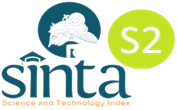Analysis of the Practicality of Booklet According to Educators and Students in Learning Process
DOI:
https://doi.org/10.33477/bs.v13i2.7083Abstract
In an effort to create the expected learning process, educators need to package and improve the attractiveness of learning media so that students like it. The selection of appropriate media has a very significant impact on the level of motivation of students to learn. Booklets are one type of learning media that can be suitable for use in learning. The existence of this booklet has been proven to support the teacher's role as an information provider for students, and can increase students' interest in learning. This study aims to evaluate the practicality of using booklets in learning. The method used in this research is meta-analysis. The data used in this study are secondary data obtained from scientific publication articles. Based on the results of the study, the average practicality of booklets according to educators' responses to learning booklets from the articles analyzed was 89.77%, which indicated a very practical category. Meanwhile, according to students' responses, the practicality of using the booklet is 89.15% with a very practical category. The results of the meta-analysis concluded that the use of booklets in learning proved to be very practical according to the assessments of both educators and students. This indicates that the developed booklet is able to provide assistance and convenience in the learning process for educators and students.
Keywords: Meta-analysis, Booklet, Practicality
Downloads
Published
Issue
Section
License

This work is licensed under a Creative Commons Attribution-NonCommercial 4.0 International License.
Authors who publish with this journal agree to the following terms: Authors retain copyright and grant the journal right of first publication with the work simultaneously licensed under a Creative Commons Attribution License that allows others to share the work with an acknowledgement of the work's authorship and initial publication in this journal. Authors are able to enter into separate, additional contractual arrangements for the non-exclusive distribution of the journal's published version of the work (e.g., post it to an institutional repository or publish it in a book), with an acknowledgement of its initial publication in this journal. Authors are permitted and encouraged to post their work online (e.g., in institutional repositories or on their website) prior to and during the submission process, as it can lead to productive exchanges, as well as earlier and greater citation of published work.














